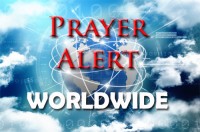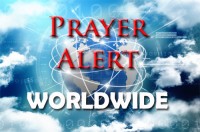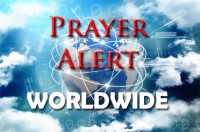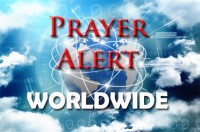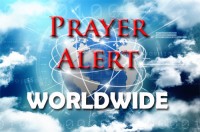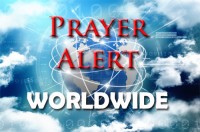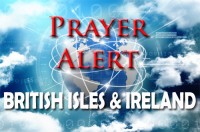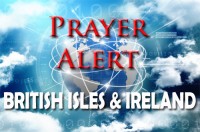South Sudan bishops (1): day of prayer a ‘mockery’
The UN warns of genocide, officials accuse the government of war crime atrocities, and Bishop Santo Doggale of Juba denounced President Kiir’s ‘National Day of Prayer’ as a ‘political prayer’. The president had called the nationwide day of prayer for peace and forgiveness on 10 March. They repented and prayed to forgive each other for problems they might have committed to each other. But the bishop told Voice of America, ‘Why should I go to pray where there is no holiness, where there is no forgiveness? It is a joke to hear the president of the country calling for prayers while soldiers are hunting people across South Sudan.’ In February, Kiir called on groups fighting his government to lay down their arms and focus on developing South Sudan but added, ‘If they don't listen to the call for peace, I will declare war against them. I don't think there is any one of you who will blame me.’
South Sudan bishops (2): famine ‘man-made’
South Sudan’s Catholic bishops have issued a pastoral letter condemning the civil war and labelling the famine ‘man-made’. The document responds to reports from all seven dioceses. They denounce government and opposition violence against civilians. ‘The killing, torturing and raping of civilians is a war crime. We want the world to hear the true situation in which our people find themselves. Our country is gripped by a humanitarian crisis - famine, economic hardship, and insecurity. Our people are struggling simply to survive.’ The bishops tell how people have been herded into their houses which were then set on fire, and recount atrocities of bodies dumped in sewage-filled septic tanks. They said, ‘People live in fear. While food shortages are partly related to poor rains, it is violence and a plummeting economy that are pushing the population over the edge into famine’.
Canada: new blasphemy laws
Motions against ‘Islamophobia’ are not legally binding but extremists are demanding them as laws. Shutting out any criticism against hardliner behaviour in the West actually means giving extremists a license to commit atrocities. Resolution M-103, seeking to condemn ‘Islamophobia,’ was introduced recently in Canada’s House of Commons, sparking a controversy. A similar motion, labelled M-37, was later tabled in the Ontario provincial legislature and was passed. Like its predecessor it demanded that lawmakers condemn all forms of Islamophobia and reaffirm support for the Anti-Racism Directorate, in order to address and prevent systemic racism across government policy, programmes and services. It is feared that hardliners supporting this form of censorship and other restrictions required by Islamic sharia law aim to blur the line between genuine bigotry and criticism of core problems such as anti-Semitism, violence against women and minors, female genital mutilation, child marriage, etc. Canada already has laws to curb any discrimination or abuse against individuals or groups.
Afghanistan: a spiritually barren land
The Afghan government does not recognise any of its citizens as Christians, nor is anyone permitted to convert to Christianity. However, there are no laws forbidding proselytism, although the practice is contrary to Muslim beliefs. There is only one legally recognised church - the Catholic chapel at the Italian Embassy - but it is not open to local nationals. There are also Christian religious facilities at foreign military bases, such as an Eastern Orthodox church at the Romanian base in Kandahar. Items and articles belonging to religions other than Islam, such as Bibles, are prohibited. Muslims who change their faith to Christianity are subject to societal and official pressure, which may lead to death. However, many sources claim there is a secret underground church of Afghans. The US state department estimates that the size of this group is between 500 and 8,000 individuals. The complete Bible is available online in Dari, and the New Testament is available in Pashto.

